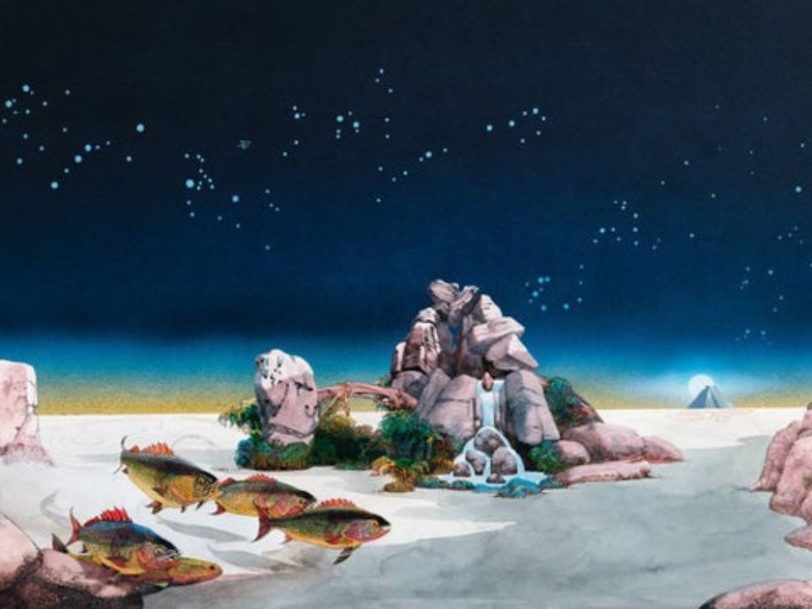Thanks to the huge sales that greeted their 1972 album, Close To The Edge, progressive-rock pioneers Yes were at their commercial height as they began recording its much-anticipated follow-up, Tales From Topographic Oceans. Keen to dive deeply into lengthy and intricately-arranged compositions, singer Jon Anderson, guitarist Steve Howe, bassist Chris Squire, keyboardist Rick Wakeman and new drummer Alan White created a record that was more grandiose and thematically ambitious than anything they’d attempted to that point.
Listen to ‘Tales From Topographic Oceans’ here.
Turning in a philosophically-rich double album that ran to an hour and 20 minutes, Yes indulged themselves with four 20-minute-long songs, each with its own subtitle and taking up one side of vinyl. Teeming with musical ideas and swimming with Jon Anderson’s spiritualist musings, Tales From Topographic Oceans marked Yes’ most fascinating sonic voyage yet. Here is the story of how Yes unearthed hidden treasures from the deep-sea trenches of prog-rock in order to make waves with their pivotal fifth album.
“We started talking about meditation in music – not the guru type but some really heavy stuff”
Building on his fascination with Eastern philosophical concepts of the inner self, the idea for Tales From Topographic Oceans took hold when King Crimson drummer Jamie Muir gave Jon Anderson the book Autobiography Of A Yogi, by Hindu monk Paramahansa Yogananda. “We started talking about meditation in music,” Anderson later said. “Not the guru type but some really heavy stuff.”
Working long into the early-morning hours while on tour, Anderson and guitarist Steve Howe began to piece together ideas based on the four Shastric scriptures of Hindu teachings. “So positive in character were the Shastras that I could visualise there and then four interlocking pieces of music being structured around them,” Anderson would explain.




